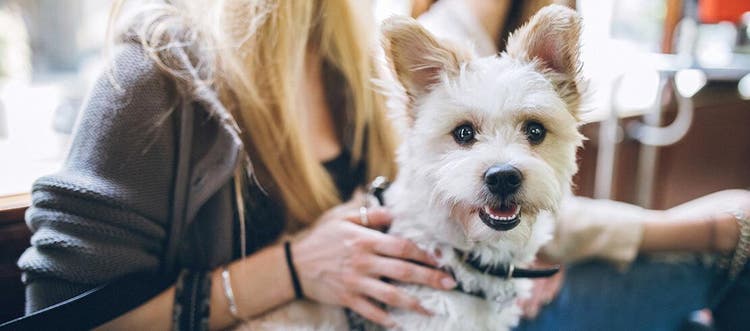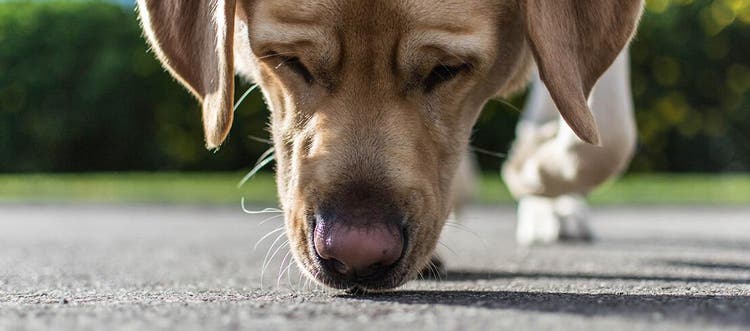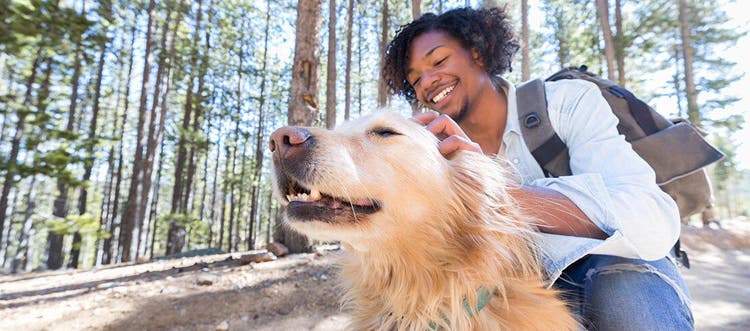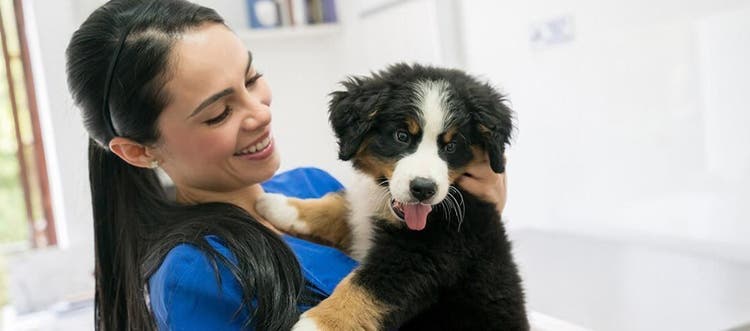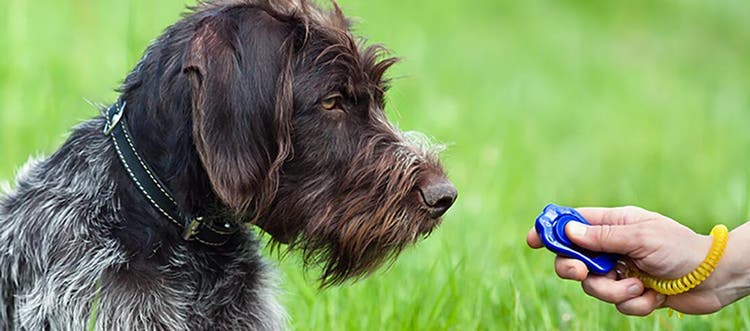Reviewed by Dr Abbie Lam DVM
Ready to buy a puppy? The journey to puppy ownership can be intimidating, but with the proper tips and preparations, the entire process can be a smooth, exciting adventure.
How to buy a puppy from a reputable breeder
If you’re not sure whether adoption is for you (see our guide to adopting a dog), the other popular option is to buy a puppy from an ethical breeder. Deciding to get a puppy from a dog breeder is just the first step in a long process, and you’ll have to make many different choices along the way.
Choosing the right puppy for you
You’ll next need to consider your desired dog’s temperament. The breed of dog does not solely define its temperament; temperament is innate to each individual dog and can vary from pup to pup within the same litter. For example, a puppy that appears dominant and aggressive, perhaps barking or standing over its siblings, may be harder to train and handle when fully grown.
Similarly, nervous puppies, like those that run away from new people and objects, will also be harder to train in the future, requiring more patience and gentler care. A good test is to simply pick up the puppy and check how quickly they settle down. If they continue to try to wriggle from your arms, it could be a dog with a nervous temperament.
Finding the best dog breed for you
Choosing the right dog breed is important to ensure your new family member fits in with your lifestyle. The breed of dog often determines their size, temperament, maintenance needs and energy level. For example, active owners might enjoy a breed known for their energy and playfulness, while those living in apartments might prefer a more relaxed breed. First-time dog owners may choose a calm and trainable breed, whilst families with young children might look for breeds known for their gentleness and patience, or households with allergies may need to consider non-shedding breeds.
Family-friendly breeds
Families with young children should choose a dog breed that has a friendly and relaxed personality, and is happy to be surrounded by people.
Some family-friendly dog breeds to consider include:
- Cavoodle
- Golden retriever
- Beagle
- Labrador
- Cavalier King Charles Spaniel
Breeds for one-person or adult households
It’s not always the case for individual dogs, however the following dog breeds tend to be more aloof and territorial and are better suited to one-person households:
- Staffordshire Bull terrier
- Border terrier
- Chihuahua
- German Shepherd
- Border collie
Spend some time researching the characteristics of the breed you’re considering before committing to a particular breed of dog.
How to find a reputable dog breeder
Some unregistered breeders engage in unethical breeding practices called ‘puppy farms’ or ‘puppy mills’. They are more likely to advertise puppies for sale in the classified ads under a mobile phone number. Such breeders have a bad reputation for unethically and continuously breeding dogs for profit, often in dirty, hazardous and otherwise inappropriate environments. Ask your vet for any recommendations, or search online for licensed breeders with professional websites and references.
It’s crucial to ensure you’re equipped with the right questions when you visit a breeder to avoid supporting unscrupulous and unlicensed breeders.
When you first meet the breeder or visit their farm or kennel, ask the following questions:
- Where is the puppy kept?
- May I meet the rest of the litter?
- May I see the parents?
- Is there more than one breed of puppy for sale?
- Will you supply a certificate of health for each dog and puppy?
- Is the dog microchipped? Will it be microchipped in the future?
- Are all the dogs here de-wormed?
- How old is the puppy?
- When was the puppy weaned from its mother?
- Which vaccinations has the puppy had?
- How have you socialised the puppies?
- Do you have any pedigree certifications or health examination documentations?
On your visit, you should be able to see the puppies with their mother, ideally while feeding. This will help you see what conditions the puppies are living in.
You should also request proof that the parents are both certified by a vet as free from inheritable diseases and conditions. Most puppies are small, but not all dogs are, so you should check how big the dog’s parents are before committing to the purchase. This will give you a sense of how large the pup will grow to be.
If your puppy is a mixed breed, this is more unpredictable, as genes for size can come from either parent. At six months of age, most dogs will be around 75 percent of their full height (less for large and giant breeds), a fact that can be useful in making predictions.
Lastly, get a signed contract in place that stipulates what will happen if you can’t keep the dog, determining your and the breeder’s responsibilities.
Next steps after adopting a puppy
A puppy is a big responsibility, and the amount of work can still take people by surprise. Ensure everyone in the household is on the same page before bringing a puppy home.
Now is also the time to think about getting your puppy insured and health checked by your vet. Your vet will likely ask you for the puppy’s name at their first examination. Our helpful guide to naming your new dog can help you narrow down your top choices before your puppy’s first vet visit. At this visit, your vet will advise you on the vaccinations and parasite preventatives your pup needs, including their next worming treatments.
It will take some time to house train your puppy.
If you work every day, you will need to take some time when you first bring your puppy home to feed, house train and walk or take your puppy outside. Young puppies need to be taken outside to relieve themselves at least every hour, depending on age, so be prepared to get reduced sleep until the process is complete.
